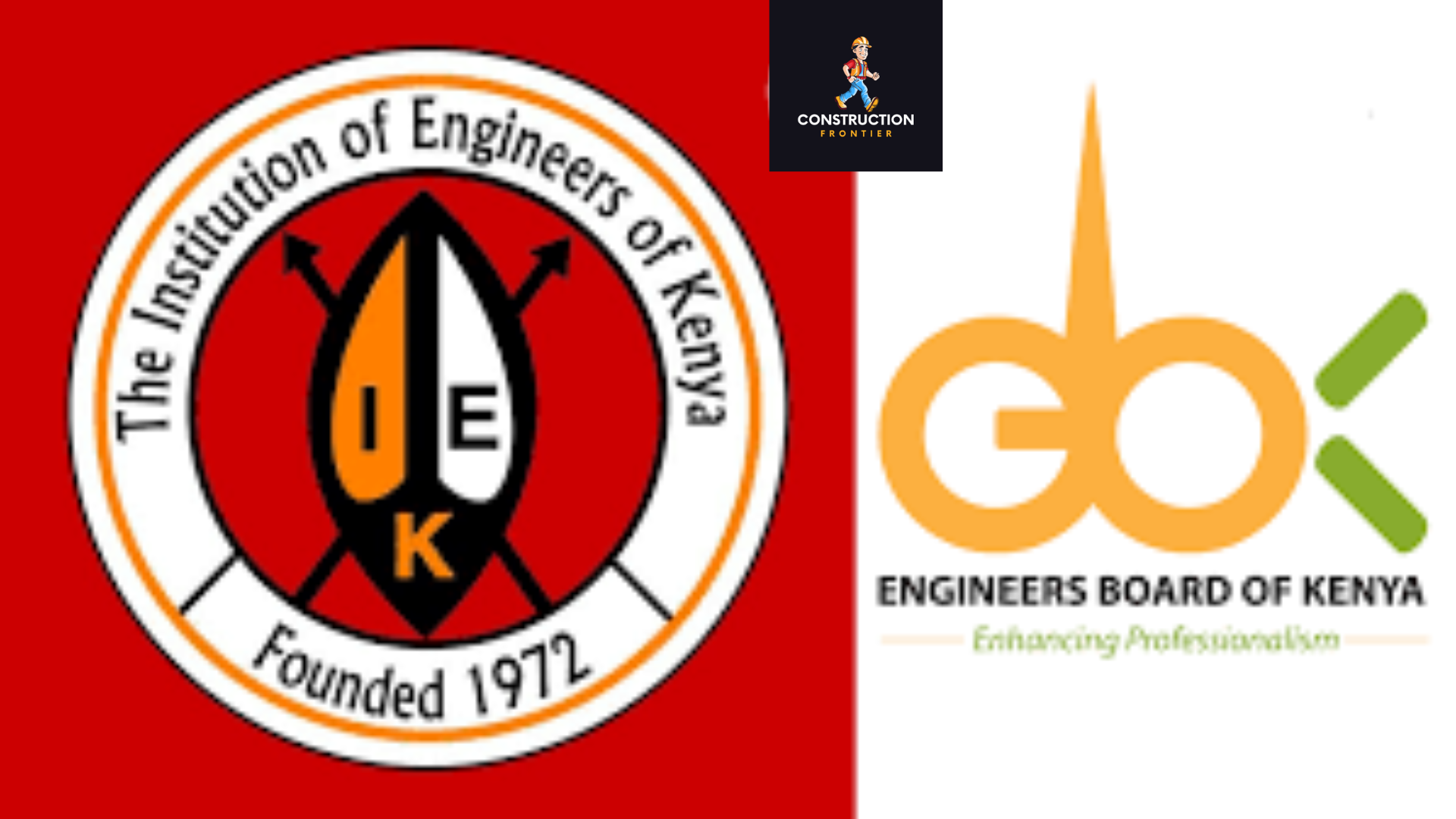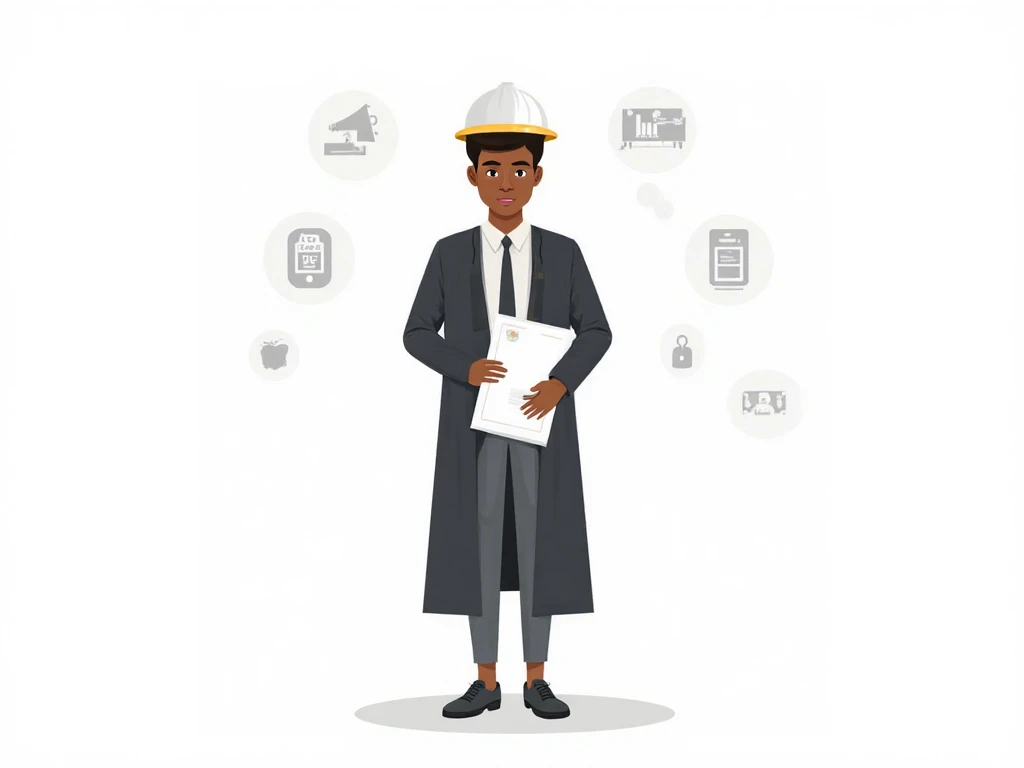How to Register as an Engineer in Kenya
Becoming a licensed engineer in Kenya requires more than academic qualifications—it involves registration with the Engineers Board of Kenya (EBK) and recognition by the Institution of Engineers of Kenya (IEK). This article explains the requirements, procedures, and step-by-step guide to registering as a Graduate Engineer, Professional Engineer, Consulting Engineer, or Accredited Checker.
The Engineer’s Registration Process
In Kenya, engineering is regulated by the Engineers Board of Kenya (EBK) and supported by the Institution of Engineers of Kenya (IEK). No person can legally practice engineering, sign off on engineering works, or present themselves as an engineer without proper registration.
If you are wondering how to register as an engineer, the process depends on your qualifications and experience. Registration ensures compliance with the Engineers Act, 2011, while protecting the public by maintaining high standards in engineering practice.
This guide covers the whole process for:
- Graduate Engineer Registration
- Professional Engineer Registration
- Consulting Engineer Registration
- Accredited Checker Registration
By the end of this guide, you’ll understand the EBK requirements for engineers and the step-by-step application process.
Understanding the Regulatory Bodies: EBK and IEK
Before you embark on the journey to register as an engineer, it’s vital to understand the two key institutions that govern and shape engineering practice in Kenya:
1. Engineers Board of Kenya (EBK)
- Mandate and Establishment
- EBK was established under the Engineers Act, 2011, as the statutory body regulating the engineering profession in Kenya.
- It acts as the gatekeeper of engineering practice, ensuring that only qualified and competent individuals are licensed to provide engineering services.
- Core Functions
- Registration and Licensing: EBK handles registering graduates, professionals, consulting engineers, and accredited checkers.
- Training Standards: EBK accredits engineering degree programs in Kenyan universities to ensure they meet global standards.
- Compliance and Discipline: The board monitors practicing engineers, investigates misconduct, and can revoke licenses for malpractice.
- Public Safety Assurance: By regulating the profession, EBK guarantees the handling of infrastructure projects by skilled experts who protect lives and resources.
- Why EBK Matters
- Without EBK registration, you cannot legally practice engineering in Kenya.
- Government agencies, corporations, and international contractors only hire EBK-recognized engineers.
- EBK certification is also crucial for engineers seeking global recognition since many countries require proof of statutory registration.
2. Institution of Engineers of Kenya (IEK)
- Mandate and Establishment
- IEK is a professional association rather than a regulatory authority.
- It provides a platform for engineers to network, exchange knowledge, and advocate for the profession in Kenya and beyond.
- Core Functions
- Professional Development: Organizes seminars, workshops, and conferences that help engineers stay updated with new technologies and industry best practices.
- Mentorship and Networking: IEK connects engineering students and young engineers with seasoned professionals for guidance and career growth.
- Advocacy and Recognition: IEK represents engineers’ interests to government and international bodies, raising the profession’s profile in policymaking.
- Membership Requirement: To advance from a graduate engineer to a professional engineer under EBK, IEK membership is mandatory.
- Why IEK Matters
- IEK membership demonstrates commitment to continuous learning and professional development.
- It places you in a community of like-minded professionals, creating opportunities for leadership roles in the industry.
- Employers value IEK membership because it demonstrates an engineer’s license and active participation in advancing the profession.
How EBK and IEK Work Together
- (i) EBK and IEK serve different but complementary roles in engineering.
- EBK enforces the law, issues licenses, and ensures compliance.
- IEK nurtures engineers through professional growth, mentorship, and advocacy.
- For example, a Graduate Engineer must first join IEK, gain practical experience, and participate in continuous professional development before applying to EBK for Professional Engineer status.
- These organizations ensure that only skilled, honest, and capable engineers are given responsibility for projects that impact public safety and national growth, such as those in the infrastructure, manufacturing, agriculture, telecommunication, and power sectors.
Understanding the Different Pathways: How to Register as an Engineer in Kenya
Before diving into the step-by-step requirements for each license, it’s essential to understand that engineering registration in Kenya is not a one-size-fits-all process. The Engineers Board of Kenya (EBK) has created distinct categories from Graduate Engineer registration to Professional Engineer licensing and even Consulting Engineer and Accredited Checker approvals to accommodate engineers at different stages of their careers. Each pathway is designed to build competence progressively, ensuring that engineers move from learning and gaining experience to ultimately leading projects and offering expert oversight.
1. Graduate Engineer Registration in Kenya
For recent graduates, the first step is registering as a Graduate Engineer with EBK. This is the entry-level category that allows you to start your professional journey.
Requirements:
- The candidate holds a recognized engineering degree from an accredited university (in Kenya or abroad).
- Certified copies of academic transcripts and certificates.
- National ID/Passport.
- Updated CV.
- Passport-sized photos.
- Application fee (approx. KSh 4,000).
Procedure:
- Visit the EBK Graduate Engineer registration portal.
- Submit the application form with the required documents.
- Wait for EBK verification and confirmation of your degree’s accreditation.
- Once approved, you are entered into the EBK register and issued a Graduate Engineer certificate.
Note: Graduate engineers cannot independently practice. You must work under the supervision of a registered Professional Engineer as you build experience.
2. Professional Engineer License in Kenya
After at least 3 years of supervised practice as a Graduate Engineer, you may apply to register as a Professional Engineer. This is crucial since it legally empowers you to design, sign, and supervise engineering works.
Requirements:
- Be a registered Graduate Engineer with EBK.
- Be a member of IEK (full membership status).
- At least 3 years of relevant postgraduate practical experience.
- Evidence of completed engineering projects.
- Detailed professional report and logbook of work experience.
- Recommendation letters from at least two registered Professional Engineers.
- Application fee (approx. KSh 10,000).
Procedure:
- Apply through the EBK Professional Engineer registration portal.
- Submit all documents, including project reports and logbooks.
- Attend a professional interview or viva with EBK.
- If successful, EBK will issue a Professional Engineer license in Kenya, and your name will be entered into the national register.
Benefits:
- You can practice independently.
- You are allowed to sign off on drawings, reports, and projects.
- You qualify to supervise graduate engineers.
3. Consulting Engineer Registration
A Consulting Engineer is a highly experienced professional recognized for advanced expertise. This status allows you to offer consultancy services independently or through a firm.
Requirements:
- Must be a registered Professional Engineer.
- At least 5 years of continuous post-registration experience as a Professional Engineer.
- Evidence of significant engineering projects undertaken.
- Valid IEK membership (Fellowship is often preferred).
- Detailed professional reports.
- Recommendation from senior engineers.
Procedure:
- Apply via the EBK Consulting Engineer portal.
- Submit academic, professional, and project documents.
- Attend an interview panel to assess competence and ethical standing.
- EBK registers you as a Consulting Engineer and issues a practicing license upon approval.
Significance:
- Ability to lead large-scale engineering consultancy firms.
- Eligibility to bid for complex infrastructure projects.
- Enhanced professional recognition locally and globally.
4. Accredited Checker Registration
Accredited Checkers are senior engineers authorized to independently review and verify engineering designs for compliance and safety.
Requirements:
- Must be a Consulting Engineer.
- Minimum 15 years of engineering experience, with a strong portfolio of major projects.
- Specialized expertise in a particular engineering field.
- Valid IEK membership.
- Recommendation letters from industry leaders.
Procedure:
- Apply through the EBK Accredited Checker portal.
- Apply with professional reports and references.
- Attend the EBK interview and evaluation.
- Once approved, you are listed as an Accredited Checker authorized to review designs.
Significance:
- Play a key role in ensuring public safety through independent design checks.
- Work on high-profile infrastructure and national projects.
- Hold one of the most prestigious titles in the engineering profession.
5. Temporary Engineer Registration
Foreign engineers who wish to work in Kenya must apply for Temporary Registration.
Requirements:
- Valid engineering license from the home country.
- Proof of employment or project contract in Kenya.
- Partnership with a locally registered engineer or firm.
- Temporary registration fee.
This ensures foreign experts contribute to local capacity building while complying with Kenyan law.
Why Registration Matters
Registering with the Engineers Board of Kenya (EBK) is not just a legal formality; it shapes your career path, credibility, and ability to practice responsibly. Here’s why it’s essential:
(i) Legal Compliance
-
- Practicing without EBK registration is a violation of the Engineers Act, 2011.
- Since statutory recognition backs your work, registration protects you against legal disputes.
- Protects you against legal disputes since your work is backed by statutory recognition.
(ii) Professional Recognition
-
-
- EBK registration is a stamp of credibility. Clients, employers, and government institutions only trust registered engineers with projects.
- Being on the EBK register means your name is publicly recognized as a qualified professional.
- Employers prefer registered engineers when hiring for leadership positions or high-value projects.
-
(iii) Career Growth and Opportunities
-
- Only registered engineers can review tenders for government contracts, supervise projects, or sign off on designs.
- Professional registration allows you to mentor Graduate Engineers, improving your leadership profile.
- Registration provides access to international recognition, particularly in nations with reciprocity agreements with Kenya.
- For example, you cannot legally run a consultancy firm without a Professional Engineer license in Kenya.
(iv) Public Safety and Accountability
-
- Engineering projects affect lives—from buildings, bridges, and roads to water and energy systems.
- Registration ensures that only competent and vetted engineers are entrusted with such projects.
- In case of project failures or accidents, EBK holds registered engineers accountable for professional conduct, safeguarding public interest.
(v) Ethical and Professional Standards
-
- EBK enforces a strictness in practice.
- This helps maintain trust in the profession, discourages corruption, and promotes sustainable development.
(vi) Networking and Industry Influence
-
- Registration often goes hand-in-hand with membership in IEK, which gives access to professional forums, conferences, and mentorship opportunities.
- As a registered engineer, you become part of a community influencing policies, standards, and innovations in Kenya’s engineering sector.
FAQs – Registering as an Engineer in Kenya
1) How long does it take to become a Professional Engineer?
It typically takes at least 3 years after Graduate Engineer registration to qualify, as EBK requires this period of practical supervised experience. However, the timeline may vary depending on the availability of mentorship, exposure to significant projects, and how quickly one prepares the required project reports, logbooks, and recommendation letters. After submission, EBK schedules a professional interview, and the approval process can add several months.
2) Can I work in Kenya with a foreign engineering degree?
Yes. However, before you can register, EBK must evaluate and accredit your foreign degree to ensure it meets Kenyan and international standards. If your degree is from a recognized institution, the process is straightforward. In addition, if you intend to practice long-term, you must still follow the standard registration pathway (Graduate → Professional → Consulting). Foreign engineers can apply for Temporary Registration for short-term contracts, provided they partner with a locally registered engineer or firm.
3) Can I run a consultancy firm without being a Professional Engineer?
No. The Engineers Act, 2011, explicitly restricts the ownership and operation of engineering consultancy firms to registered Professional Engineers. This ensures that only competent and accountable professionals are entrusted with projects that affect public safety. Without a Professional Engineer license, you can only work under supervision or in support roles within a consultancy firm. Engineers must aim for Consulting Engineer status to progress further and run large-scale or independent firms.
4) How much does EBK registration cost?
The registration fees vary by category. As of now:
- Graduate Engineer registration: approximately KSh 4,000.
- Professional Engineer registration: approximately KSh 10,000.
- Consulting Engineer and Accredited Checker registrations attract higher fees, often ranging from KSh 15,000 to 25,000, depending on the category.
- Temporary Registration fees for foreign engineers are determined on a case-by-case basis.
It is also worth noting that there may be additional costs for documentation, IEK membership subscriptions, and continuous professional development activities, which are mandatory for career progression.
Why Registering as an Engineer Matters
The journey to register as an engineer in Kenya is a structured process designed to safeguard public safety while upholding professional standards. From Graduate Engineer registration to the prestigious level of Accredited Checker, each stage builds credibility and trust.
By meeting the EBK requirements for engineers, you comply with the law and unlock local and international career opportunities. Whether your goal is to obtain a Professional Engineer license in Kenya or rise to the ranks of a Consulting Engineer, the effort invested is a lifelong professional asset. Registration as an engineer validates your knowledge, experience, and ability to deliver projects that meet global standards, a critical factor in today’s interconnected engineering world.
Stay Ahead in Engineering Practice
Are you planning to register or upgrade your status as an engineer in Kenya? Stay informed with expert industry updates, guides, and resources at ConstructionFrontier.com—your trusted engineering and construction insights partner.












